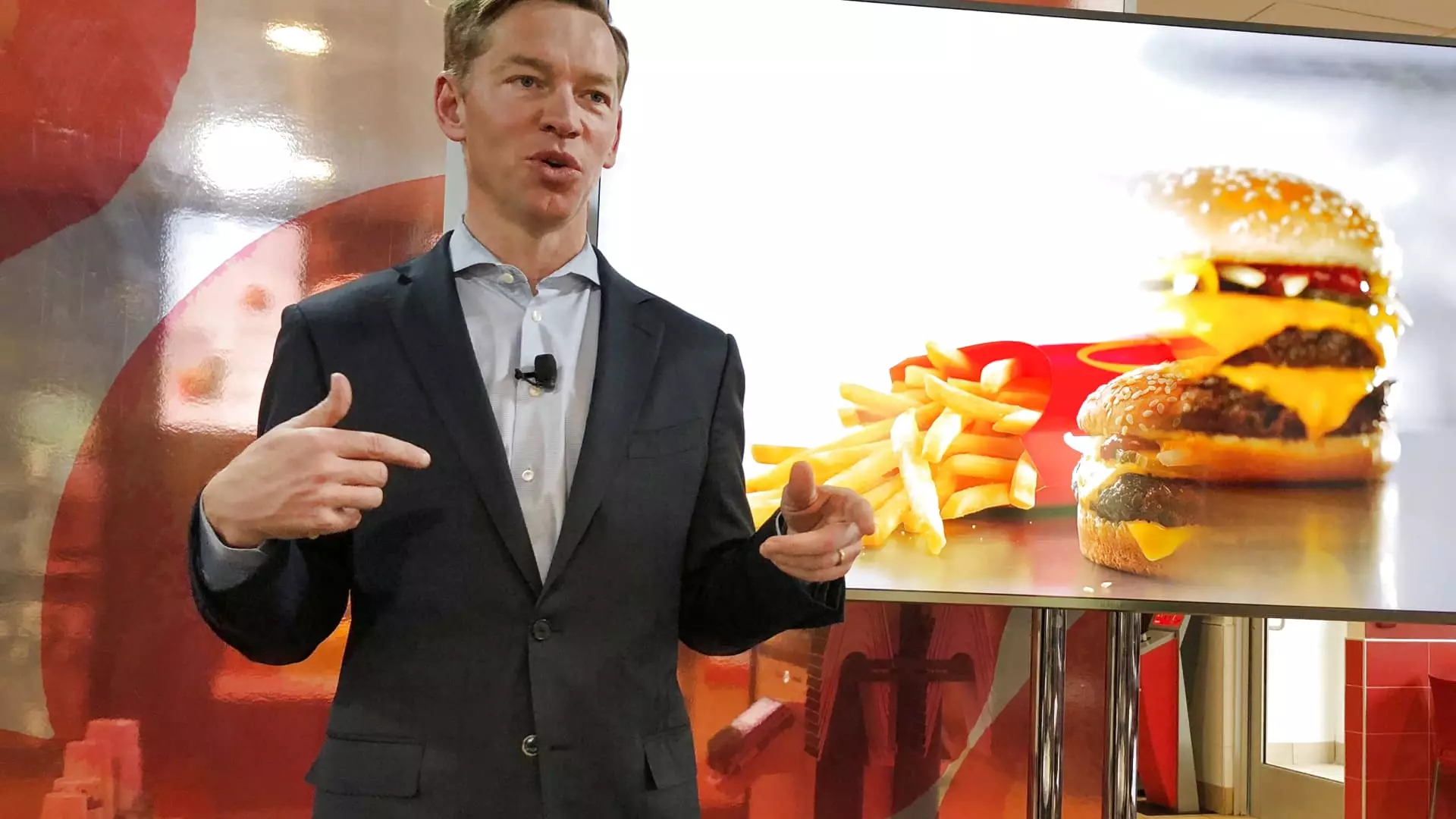In a significant public health scare, McDonald’s faced scrutiny when an E. coli outbreak was traced back to its popular Quarter Pounder burgers. The outbreak raised alarms among health authorities and the public, leading to widespread concern over food safety. Reports indicated that at least 75 individuals in 13 states fell ill, with one individual tragically succumbing to the infection. The incident prompted an immediate response from McDonald’s, marking a crucial test of its crisis management strategies and corporate responsibility.
In the aftermath of the outbreak, McDonald’s CEO, Chris Kempczinski, took a proactive approach, addressing investors on the situation’s status. He confidently declared that the health crisis was behind the corporation, asserting that the company had effectively contained the outbreak. This assertive tone aimed to restore investor confidence, even as the Food and Drug Administration (FDA) continued to investigate potential sources of contamination, including the slivered onions used in the burgers.
Kempczinski’s remarks during the investors’ call highlighted an essential aspect of crisis management: clear and decisive communication. Acknowledging the gravity of the situation, he expressed sympathy for affected customers and emphasized McDonald’s commitment to resolving the issue. The company’s swift decision to halt sourcing onions from the implicated supplier indicated a willingness to prioritize customer safety over short-term profits, a move crucial for maintaining brand integrity in the long term.
Despite the company’s confidence, the initial aftermath of the outbreak saw a notable decline in daily sales and restaurant traffic in the U.S. market. This downturn highlights a critical facet of consumer behavior—public perception directly influences sales performance, especially in the food industry. The CFO of McDonald’s, Ian Borden, acknowledged the negative impact but reiterated that the company anticipated no material long-term effects on its business.
Interestingly, the corporation’s strategy included reintroducing the Quarter Pounder to about 3,000 locations with revised preparation protocols: approximately 900 of these restaurants would offer the burger without slivered onions. By carefully managing the menu and addressing safety concerns, McDonald’s aimed to gradually rebuild consumer trust while also catering to those craving the beloved burger.
While McDonald’s reported a slight uptick of 0.3% in same-store sales for the third quarter, it fell short of analysts’ expectations. This discrepancy illustrates the dual challenge of immediate revenue recovery while also striving to enhance customer confidence, which is crucial for a brand that thrives on repeat business.
The outbreak has also triggered legal ramifications, with multiple lawsuits filed by affected customers. Such actions bring forth pressing questions surrounding corporate accountability and ethical responsibility. The intersection of consumer safety and corporate governance plays a pivotal role in shaping the narrative of this crisis. In addressing the legal actions, McDonald’s must navigate the fine line between defending its practices and acknowledging the valid concerns of consumers.
The emotional toll of the outbreak is not to be overlooked. The CEO’s public apology served not just as a corporate statement but as a crucial step towards reconciling with distraught customers. This acknowledgment of the impacts on individuals reflects an essential characteristic of effective crisis management—understanding and conveying empathy.
As McDonald’s looks to the future, the focus now shifts to restoring its brand reputation and ensuring such incidents do not recur. To move forward, a multi-faceted strategy that emphasizes stringent food safety protocols and transparent communication with consumers is paramount. McDonald’s must also explore additional measures to fortify its supply chain against potential disruptions, fostering resilience in an industry susceptible to sudden health crises.
The recent E. coli outbreak serves as a critical case study in corporate crisis management. McDonald’s response, marked by swift action and clear communication, illustrates both the challenges and opportunities businesses face in safeguarding consumer trust. By leveraging the lessons learned from this incident, McDonald’s can work towards healing its brand image and ensuring sustainable, safe operations in the competitive fast-food landscape.


Leave a Reply